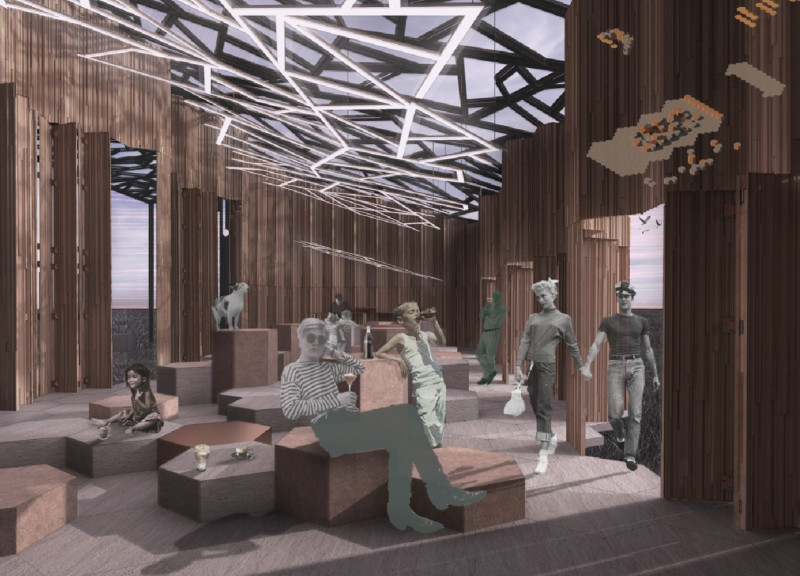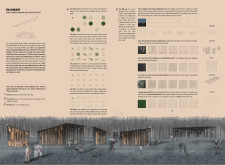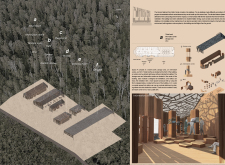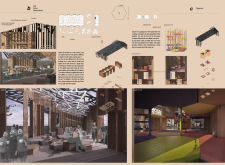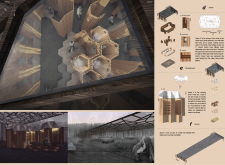5 key facts about this project
The Kemeri National Park Visitor Center is located in Latvia, within a richly diverse ecological area. It serves to educate visitors and enhance their interaction with the park’s natural environments. The design focuses on connecting architecture to the landscape. It emphasizes the significance of creating spaces that reflect the unique characteristics of the park while providing meaningful experiences for the public. The layout features a series of connected spaces, each meticulously designed for specific functions that support visitors’ needs and engagement with nature.
Functional Design
The visitor center consists of six separate buildings arranged to facilitate easy visitor access and navigation. Space A includes a ticket booth, storage area, information center, and restroom facilities. This layout allows visitors to access essential services without confusion. Each area is specifically designed to fulfill its function, promoting efficiency while creating a visual connection to the natural environment surrounding the center.
Recreational Amenities
Space B features a café, terrace, and outdoor kitchen that encourage social interaction among visitors. The design includes varied wall heights and door sizes, which adds visual interest and creates a welcoming environment. The outdoor kitchen promotes communal dining and sustainability, with designated areas for food presentation and utensil returns. These features foster a sense of community and encourage visitors to connect with the park.
Play and Overnight Experience
In Space C, the design incorporates a playground that can be used in any weather, allowing children to play outside regardless of conditions. The climbing structures are varied, making playtime engaging for different age groups. Space E showcases modular camping booths that serve as tents, designed for visitors who wish to spend the night. This feature allows guests to experience the natural environment up close, enhancing their connection to the landscape.
Materiality and Sustainability
Materials for the visitor center are chosen for their sustainability and practical use. Basic wood frames and wood cladding are utilized to achieve a low-energy approach that aligns with ecological awareness. All selected materials are designed to last and can be recycled, ensuring that the buildings support not only immediate needs but also the long-term health of the park environment.
The design reflects a commitment to integrating built spaces into the landscape. It encourages visitors to appreciate the beauty of Kemeri National Park while respecting its ecological integrity. The result is a thoughtful balance between functionality and nature, creating a place that pauses to consider how architecture can coexist with the environment.


